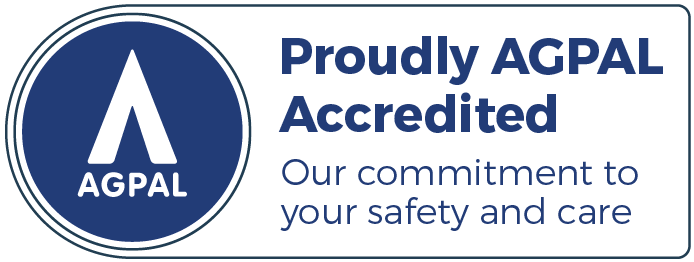We are FINALISTS in the Hills Local Business Awards for Health Improvement Services! Thank you for all your support!
Women's Health
Areas of Women’s Health we provide include:
- Antenatal GP Shared Care
- Post-Natal Care
- Contraception Advice
- Breastfeeding Issues
- Cervical Screen Tests
- Breast Examinations
- MTOP
- IUD insertions and removal
- Implanon insertions and removal
- Iron Infusions
- Menopause Care
- Weight Management
Antenatal GP Shared Care
Antenatal care is an umbrella term for the care of pregnant women until the child is born and is aimed at detecting any existing problems that can develop which could affect the mother or her unborn baby.
The importance of good antenatal care in pregnancy cannot be over-emphasised. It links the mother and her family with formal health systems which ensures the presence of a skilled attendant at the birth and contributes to good health throughout the life of the woman and her baby. Inadequate care during this time breaks a critical link in this care and affects both the woman and her babies.
Various routinely advised screening tests, diagnostic procedures and prophylactic treatments are offered and special tests and procedures are advised for any mother identified to be at risk.
Care for the mother and the baby should begin as soon as pregnancy is planned or confirmed. Cost restraints are often a factor in deciding on this. Australia has one of the best public health systems in the world for the care of pregnant women, meaning that you will be in good hands regardless of where you choose to go to have your baby.
Your doctor will advise you on many aspects of your pregnancy and childbirth and will be your friend and guide throughout.
Dr Smitha has a shared care arrangement with Westmead, Blacktown and Auburn Hospitals.
Family Planning and Contraceptive Advice
Family planning is the method of planning your family in terms of the desired number of children, and comfortably spacing your pregnancies. Family planning is achieved with the use of contraceptives.
There are many different methods of contraception to avoid pregnancy including the oral contraceptive pill (OCP), barrier methods, an intrauterine device (IUD) such as Mirena, Implanon, vaginal rings; natural family planning methods and more permanent measures such as tubal ligation and vasectomy for men.
Your doctor can help you decide which method is best for you.
Cervical Screening Tests (CST)
Australian guidelines recommend a 5-yearly cervical screen test from the age of 25 or earlier if you have worrying symptoms. Regular screening enables early detection and treatment of cervical abnormalities to prevent progression to cervical cancer. Abnormal vaginal bleeding patterns such as inter-menstrual bleeding or postcoital bleeding should be discussed with your GP as this may indicate cervical abnormalities.
All women between the ages of 25 and 74 years, who have ever been sexually active needs a cervical screen test every 5 years from the age of 25, or earlier if you experience worrying symptoms. Your GP can help you decide when is the right time for your CST.
If you have no symptoms and your GP determines that you have a low risk of cervical changes, then you may be offered self-collect cervical screening.
Menopause Management
Most women by the age of 50 will experience symptoms of the hormonal imbalances which occur when the ovaries naturally start to switch off. These symptoms can vary between women and, for some, they can be quite debilitating and interrupt their lives significantly. There are treatments available that can help ease the menopausal experience and our GP can help you choose the right one for you.
NORWEST CENTRAL HEALTHCARE
Phone
General Practice: 02 8865 4700
Allied Health: 02 8865 4701
Location
Suite 307, Level 3
10 Century Circuit
Norwest 2153, NSW Australia
Same day appointments available.
Open Hours
Mon - Fri: 8:00 AM - 6:00 PM
Sat: Closed (coming soon)
Sun: Closed







